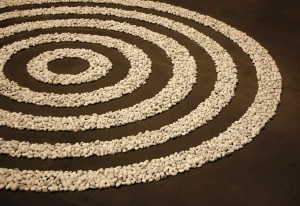By Salman Khan
In his 1972 book, The Politics of Heroin, Alfred McCoy coined the phrase the “suppleness of the state.” He discussed the history of heroin discovery, production, and existence until today. Among the many discoveries he made was that the CIA actually had a heavy hand in the production and distribution of heroin throughout the world. Interestingly, he found that the CIA’s complicity in the global drug trafficking ring actually worked against many other US policies and organizations. For example, 10%-15% of lower ranking US Army men serving in Vietnam were heroin users as a result. This affected morale and actually harmed the US military. Additionally, organizations that sought to stop the spread of drug trafficking worked in direct contradiction to the CIA. This is what McCoy meant in his phrase the “suppleness of the state;” there were so many different parts of the state that in many instances they worked in contradiction of each other, instead of in benefit of the overall state.
In my experiences I have found that there exists a certain “suppleness of the state” in the Muslim community as well. In our organizations we all have noble objectives, yet due to unfortunate circumstances we compete with each other instead of collaborating. For example, you can find two or three masajid (mosques) in a close-knit area, each of which is in debt and in need of resources. Instead of pooling together and benefiting from one unified and financially stable masjid, the three masajid stay separated and broken. Not only is the community divided, but from a financial standpoint it just does not make sense. Regardless of the reasons, whether cultural, a result of bad history between the board members, or anything else, we should not work against the overall goals of our communities and ummah (global Muslim community).
Another example is with our Islamic schools and non-profit organizations. Many times there are similar organizations seeking the exact same goals, whether it is trying to build a community center, conduct da`wah (calling to Islam), or collect money for relief causes. This isn’t always a problem. If organizations are working towards similar goals, but are operationally different, or at least working together, then this is not an issue. There was ikhtilaaf (difference in opinion) among even the sahabah (companions of Muhammad ﷺ, peace be upon him), so we should not expect or call towards having one set way of doing things. The issue arises when organizations and individuals work against each other and harm each other.
As a community we have limited resources, so when multiple organizations working on similar projects, are all requesting the same resources (money, volunteers, etc.) and pulling them in ten different directions instead of a few—to do the exact same thing—we waste time, energy, and money. For example, some of our major Muslim non-profit organizations have administrative fees and marketing fees in the millions! Imagine how much money would be saved if they worked together. When we spread our resources thin, they are never enough. However, when we pool these resources together, we can accomplish a lot more. God knows best, but there seems to be an unnecessary “suppleness of the Muslim state” that works against the overarching goals of our community that needs to be addressed.


Love the article brother just think that cultural traditions as well as dirty politics creates the divisions we see. This is more evident in the 1st generation immigrants (not saying all of them but a substantial amount of them) who migrated to the West. InshaAllah we will see that the subsequent generations could learn and try to rectify this problem before we as an Ummah become sooo thinly spread that we further distance ourselves from what a true Ummah is meant to be.
Maybe these Trials we are seeing, in this day and age, will help us come closer. I often think of the Jews in the Nazi Concentration Camps. Before the advent of Nazism, how many of these Jews living in Europe cooperated with one another? How often did the rich Jew converse with the poor Jew (and vice versa)? How often did the free liberal Jew interact with the religious Rabbi? or how often did the different sectarian Jews ‘shake hands’? It was only under tragic circumstances that these Jews united, and not only that, but they probably shared the same bunk beds as one other (whatever their background was) within those concentration camps.
We, as Muslims, should learn from this, and hope that we don’t unite out of duress or any tragic circumstances that are inflicted upon us, but only out of love and care.
Hopefully the current connected generation, will make the connections with each other irrespective of the old guard’s ways of working, perhaps starting with initiatives and organisations that are more peripheral, and then as those become stronger through greater unity, I hope it would create a tide that changes more traditionally-held organisations all the way back to the community mosque.
InshaAllah 🙂